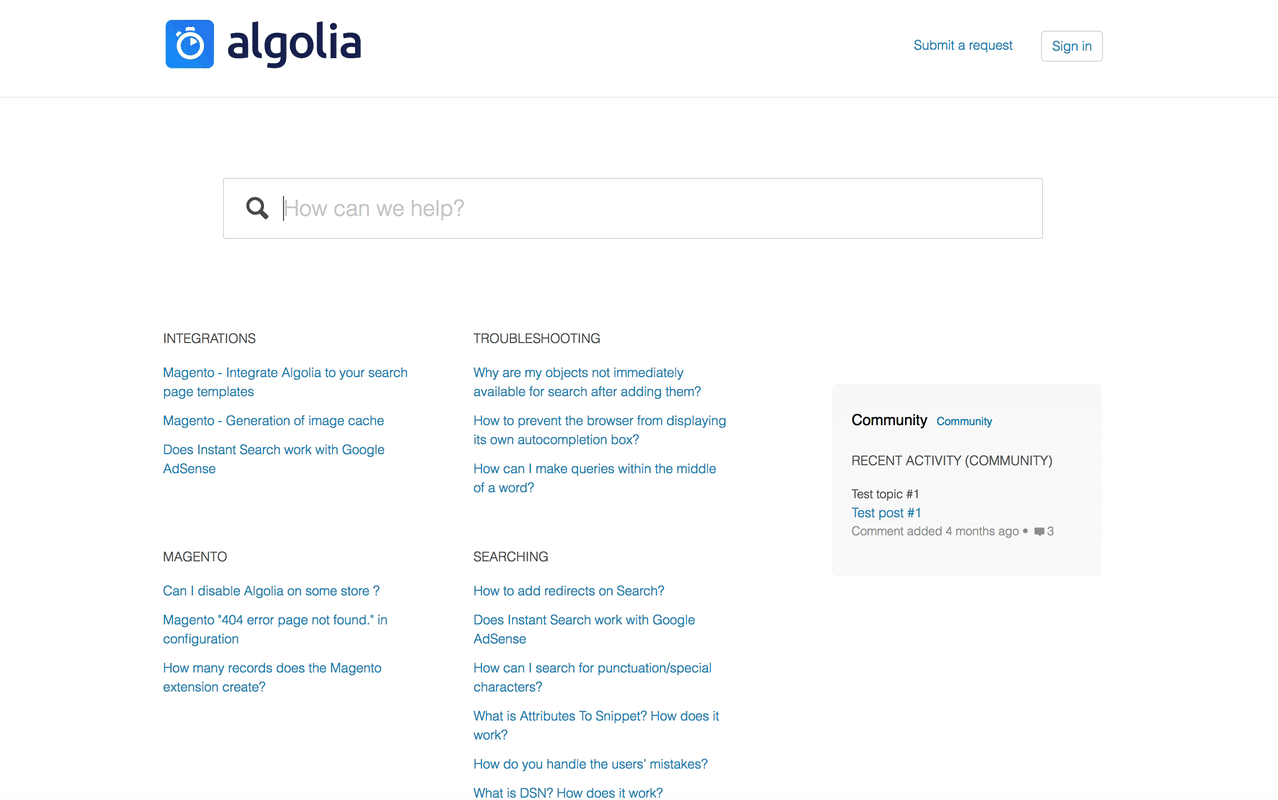CMS Requirements Checklist & Key Questions to Consider

Choosing your next content management system (CMS) is not a decision that should be taken lightly. With the vast number of CMS solutions available for your business, it’s important that you evaluate all of your technical and functional requirements so that you can make the most informed decision. There’s certainly no one size fits all when it comes to choosing a CMS. Each content management system has its own set of functionalities that make it suitable for different types of businesses. What works for a multinational eCommerce business will be completely different to what works for a small high street retailer. Therefore, prior knowledge of your CMS requirements is fundamental to making the right choice and hopefully some of the following questions will help you narrow down your options.
Review Your Business Goals
With any web design and development project, we would always recommend that you take a look at the wider organisation goals before jumping straight in. You may unearth some previously unknown plans that will have a great influence on your choice of CMS. For example, your business may be developing a new product that enables the business to sell direct-to-consumer, which would require eCommerce functionality in your next build. Knowing the overarching goals of your website will also help in commissioning the most appropriate web development agency.
List Your Functional & Technical Requirements
Take some time to run through your functional and technical requirements to make sure that your CMS houses all of the necessities and any additional features that you may require in the future, subject to your wider business goals. Organisations often fall into the trap of choosing a CMS based on its feature list, rather than strictly evaluation business requirements and how the CMS can help them achieve their goals.
Questions to ask yourself:
- What does your website need to do?
- How does your website need to perform internally?
- Are there any upcoming business changes that may affect your website?
- How do you want to get up and running with the CMS?
- Will you be using internal resources or outsourcing your web development?
- Are there any internal policies that you need to adhere to? E.g. only using a windows platform or an open source CMS.
- Are you currently contracted to a web design agency? If so, do they have any development limitations?
Here are just a few functional and technical requirements that you may consider implementing:
eCommerce functionality
You’ll need eCommerce functionality if you wish to sell your products online. eCommerce platforms can come in many shapes and sizes, so it’s worth assessing whether selling online will be your websites main goal. Remember to note how many products you are likely to list, as this will also influence your choice of eCommerce platform. If you’re only listing 50-100 products online, a simple open-source eCommerce plugin like WooCommerce may suffice. However, if you’re expecting to list 1000s of products online, you may consider something more robust and feature-rich like Kentico or Magento.
Multilingual functionality
Being able to seamlessly switch your website from one language to another based on location can have a great impact on your website’s performance. This would be well worth implementing if your brand has a global reach.
Marketing automation integration
If content marketing is a key part of your lead generation strategy, you may consider a CMS platform that houses its own marketing automation platform. This will allow marketers to capture, engage and nurture prospects with relevant content right from within the CMS. Kentico is an example of a leading CMS platform that now houses its own marketing features. Some other marketing features that you may find useful as part of your CMS:
- Personalization
- Email marketing
- Lead scoring
- Responsive communications and interactions
- A/B testing
Headless content management
A relatively new concept in the world of content management systems is headless architecture. Particularly useful for large marketing teams, a headless CMS allows users to create content in the cloud which can then be presented on multiple devices via an API (Application Programming Interface). Content and presentation layers are effectively separated, therefore headless is great for businesses that want to provide first-class user experiences across multiple devices such as websites, apps, virtual reality and chatbots. You can find out more about headless CMS on our blog here.
Gated content
A password protected area can provide your customers or internal staff with access to exclusive content that can only be accessed with approved credentials. Most CMS platforms will be able to cover this functionality; however, bear in mind that it may be at the expense of a separate plugin or additional development.
Advanced search functionality
Most CMS platforms come with their own search function, but you may find this too basic for your needs, particularly if you’re an eCommerce store with an extensive catalogue. Upgrading to an advanced search functionality that displays multiple results in an instant (without loading a separate page) will be sure to improve your customers experience. Faceted search can also be used, which allows users to filter their results and find what they need faster. Below is an example of real-time search functionality using Algolia:

Integrating Additional Software
It’s vital that you’re aware of all of the software packages that your business uses and which ones are required to integrate with your new CMS. Complex integrations can be tough, so being well aware of these in advance can help make your project run smoother.
Questions to ask yourself:
- What software does the website need to be integrated with?
- Is your business moving over to any new software packages in the near future?
- Do you have access to web service or APIs for your software?
- Do your developers have experience working with these software packages?
Considering the wider business impact
As marketers, it’s important to remember that a website serves the whole business and isn’t something that acts solely as a lead/revenue generator for marketing and sales. Redeveloping a website can have huge implications on the day-to-day work of many employees, therefore knowing how others use your current site on a daily basis can help facilitate a seamless migration. Departmental managers will have multiple objectives (often different to marketing) which will clearly impact the type of CMS that you should consider. Working closely with line managers early on in the process will make sure you satisfy everyone’s requirements.
Questions to ask yourself:
- Have you quizzed other departments to assess their website requirements?
- Are there any customer-facing employees that you can survey to ascertain improvements for your next CMS?
- Are there any particular features that would help other departments in their day-to-day work?
- Does your proposed CMS satisfy the goals of other departments?
Choosing a CMS vendor & web development agency
Aside from the technical requirements for your CMS platform, there are also some implementation and maintenance requirements that you should consider:
- Ongoing Training – Does your vendor and/or agency provide specialist training for your required CMS platform? The right training for your internal teams will results in a better return-on-investment as you’re able to get up to speed with its full capabilities.
- Maintenance Fees – What are the projected maintenance/licence fees for the CMS solutions that you’re considering? Are these achievable with your current budget?
- Content Migration – Will your agency be able to migrate your content to the new CMS or will you need to find additional resource for this?
- Hosting – How will the new CMS platform fit with your current hosting provider? Often, it’s best to consider a CMS platform that enables multiple options for hosting.
- Vendor Roadmap – Does your potential vendor’s roadmap for development of the platform fit in with your organisation’s goals? For example, if your business strives to be at the forefront of marketing communication, choosing a vendor that keeps up with marketing trends would be a key consideration.
- Consultancy Services – Would your business benefit from some digital consulting services to get your new CMS up and running?
Hopefully, now that you’ve run through all of the potential requirements for your CMS, you’ll be better equipped to move forward in finding the right solution for your business. To find out more about the CMS solutions available for your business, please call our web development experts on +44 (0)203 397 4155 or email [email protected]
Download our website design guide
Enter your details below to receive our website design guide by email.
